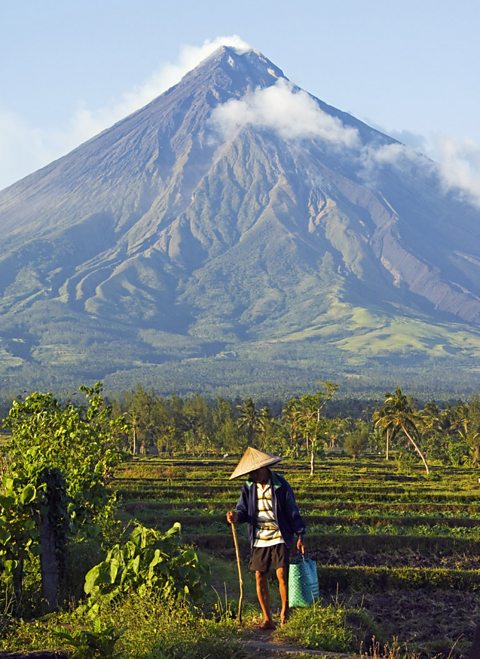Positive and negative effects of volcanoes
Volcanoes have a large effect on their locality. They produce ash, lava, volcanic bombsLarge blocks of hot rock thrown from a volcano., pyroclastic flowA current of hot gas and rock that flows downhill at high speed. and laharA destructive volcanic landslide or mudflow, consisting of a mixture of volcanic debris, mud, rock and water.. Ash from large volcanoes has been known to affect global climates.
The effects of volcanoes can be both positive and negative.
Positive effects
- geothermalEnergy from the heat of the Earth. energy is where heat from within the Earth is used to generate electricity. Geothermal energy can be generated in areas where magmaMolten rock that is found within the Earth. lies close to the surface. This is good for increasing renewable energy use.
- Ash ejected by the volcano acts as a good fertiliser for soils.
- Volcanoes attract many tourists, who enjoy the dramatic scenery that they produce.
- Rising magma brings valuable minerals to the surface, creating mining opportunities.
Negative effects
- Volcanoes are dangerous. They can kill people and damage property.
- Economic activity can suffer as it is hard for businesses to operate after an eruption.
- Habitats and landscapes are damaged by lavaMolten rock that is released from the Earth's core in a volcano or fissure. flows.
Why do people live by volcanoes?

A man works on the fertile land at the base of the Mayon Volcano in the Philippines
People choose to live in volcanic areas despite the risks of an eruption. Volcanoes can provide people with many benefits such as:
- volcanic rock and ash provide fertile land which results in a higher crop yield for farmers
- tourists are attracted to the volcano, which increases money to the local economy
- geothermal energy can be harnessed, which provides free electricity for locals
- minerals are contained in lava, eg diamonds - this can be mined to make money